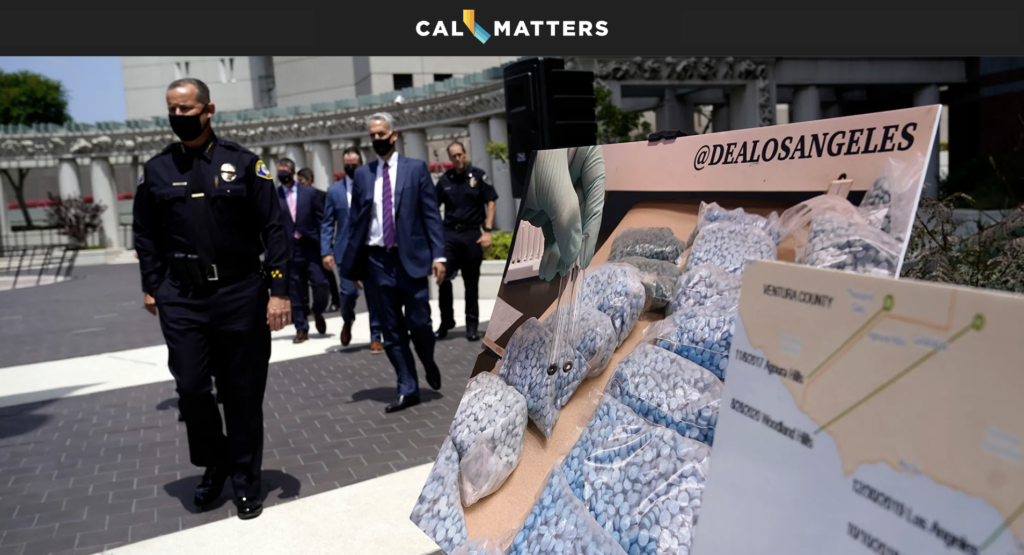By Tom Wolf
This article was originally published in Cal Matters
Proposition 36 qualified for the November ballot in California with over 900,000 signatures.
Simply put, this ballot initiative will reform aspects of Proposition 47 that in 2014 reclassified several “quality of life” crimes as misdemeanors instead of felonies. The most obvious was shoplifting — where the threshold for misdemeanor theft was raised to $950 per offense — and drug possession.
The impact of these changes was meant to reduce incarceration rates and create a more equitable response toward people of color who have been historically overrepresented in jails and prisons.
Did these changes work? If you look at the data, the answer is not only no but shoplifting of less than $950 increased 28% over the past five years. Did these changes work regarding drug possession? While arrests weren’t necessarily down, referrals to diversion programs were up. In 2021, 55% of people released into diversion programs in San Francisco re-offended, according to the California Policy Lab, a University of California research institute.
While this experiment was happening, something else happened: Fentanyl started showing up in our communities. It replaced heroin on the streets and began an unabated overdose and poisoning crisis that helped contribute to roughly 11,000 deaths in California two years ago and 107,000 overdose deaths in the U.S. last year.
In cities like San Francisco the drug crisis has exploded, with an estimated 8,300 people are homeless and 51% experiencing drug or alcohol addiction. Overall, in 2023, California saw one of most rapid surges in drug deaths in the country.
In one 12-month period, San Francisco police seized over 80 kilos of fentanyl in just one neighborhood. Mind you, that’s the amount seized, not the amount that’s out there. Since Prop. 47 reclassified certain drug possession offenses, organized drug dealers arrested with small amounts of drugs avoided stiffer penalties. Instead, they can be charged with misdemeanor drug possession and could have been released or referred to a diversion program which, as data shows, often results in another crime.
This has led to an explosion of drug dealers on the street. For every dealer arrested, a new one will replace them. But since the ones who get arrested often end up back on the street, you now have two dealers where you only had one.
Like cancer cells, they divide and multiply.
For me, the big reason we need Prop. 36 is the fentanyl crisis. I’m a formerly homeless heroin and fentanyl addict in recovery. I experienced homelessness on the streets of San Francisco in 2018 and witnessed firsthand the arrival of fentanyl and its impact.
Fifteen people I once knew are now dead from drug overdose. Yet, when I walk the streets of San Francisco today, I still recognize drug dealers I knew six years ago. Have they been arrested numerous times? Yes. But, due to Prop. 47 and potential diversion and plea deals, they are still there. Despite multiple convictions for dealing drugs, they have no remorse, no regrets and people continue to die at alarming rates.
Prop. 36 will restore accountability. It will not only hold fentanyl dealers accountable, but it will also give them an admonishment or a warning upon conviction that if they continue to sell fentanyl and someone dies of an overdose or poisoning, they can be charged with murder. This is called “Alexandra’s Law” which is embedded in Prop. 36 and named after Alexandra Capeluto who tragically died of drug poisoning after taking what she thought was an Oxycodone pill but was fentanyl.
The dealer knew it, didn’t tell her what was in it and, now, she is no longer with us.
Many Californians don’t realize this, but the street drug markets have changed. Dealers with foreign supply chains are no longer viewed as exploitative, and the overdose deaths and poisonings tied to their product are basically met with “thoughts and prayers” by Sacramento lawmakers — instead of substantive actions that help level the playing field between accountability and compassion.
This is possible, too. If you are a drug user on the street and you are stealing to support your addiction, you should be held accountable for theft. But, because you are addicted to drugs, you should be able to avoid prison or a lengthy jail sentence by accepting an opportunity to receive treatment. If you complete treatment, your record will be expunged and charges dropped. That is literally the definition of restorative justice.
Take it from me as someone who was offered a choice very similar to this: most will choose treatment and a pathway off the street. It’s what most of us who are or were homeless and addicted really want.
Prop. 36 offers real off-ramps for people struggling with addiction who become justice involved. That offramp is recovery. Under Prop. 47, too often, the offramp is a straight line back to the street.
It doesn’t have to be one or the other as critics try to frighten you into believing, there is a third alternative, and that alternative is treatment. Let’s give people a chance because I needed that chance once.
Under the Prop. 47 criminal justice system, it took six arrests — yes, six — before I was held in jail for three months, which was long enough to detox and start making better decisions. That was the beginning of my road to recovery. Prop. 36 would make it three arrests for similar charges.
If Prop. 36 was in place six years ago, that could’ve meant less time for me on the street, less time addicted to drugs and less time away from my family. Is it hard? Absolutely. But misusing drugs and having to steal every day to support your addiction is harder.
Are treatment and recovery worth it? Ask my wife and children who have their husband and father back. Accountability and compassion together saved my life. We can have both.

